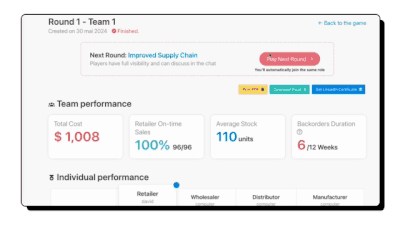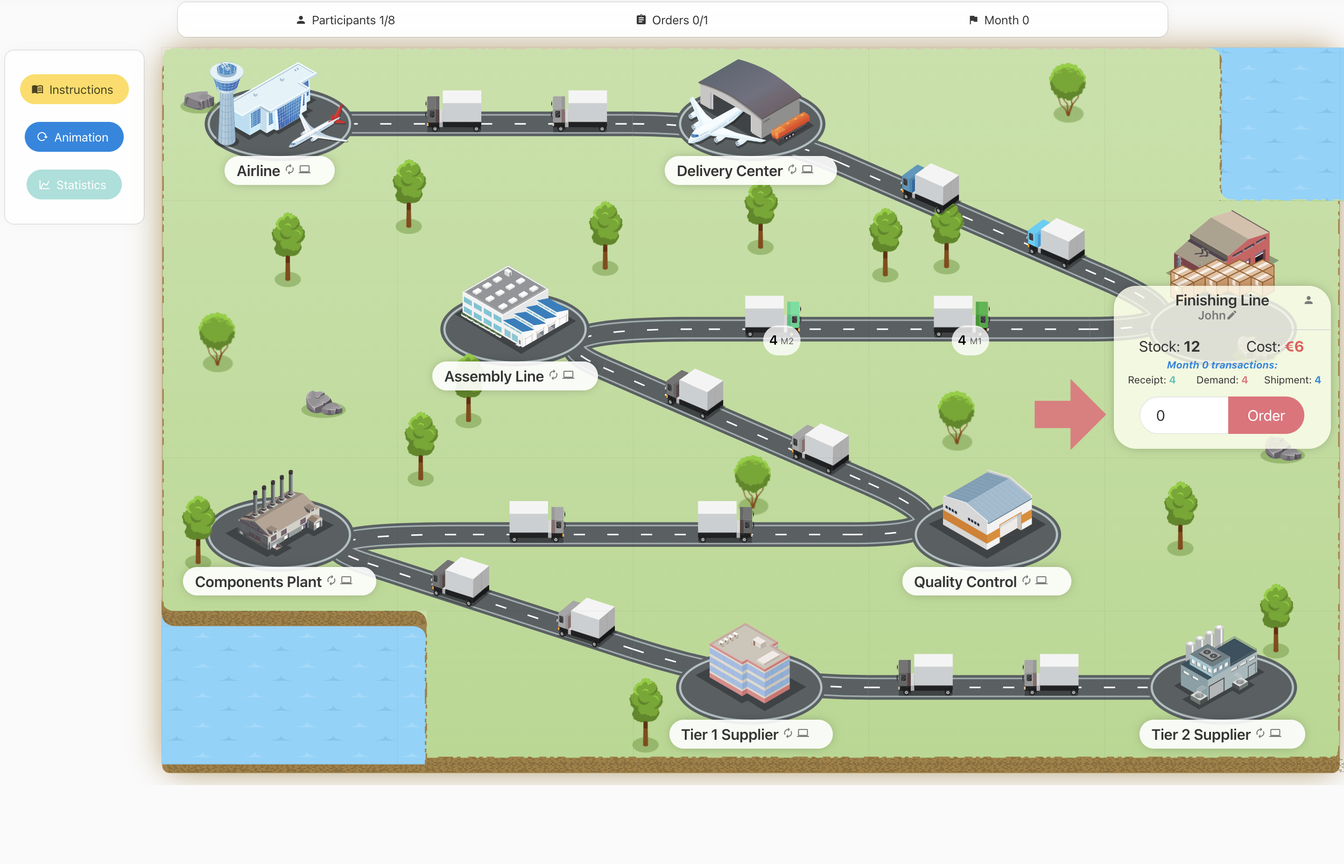In today's remote work environment, fostering team collaboration and building strong connections among team members can be challenging. Online games have emerged as a popular and effective tool for team building, offering engaging and interactive ways to bring teams together, no matter where they are located. However, before diving into the world of online team building games, it's crucial to consider several factors to ensure their successful implementation.
This article presents seven key considerations to help you choose and implement the best online games for team building. Additionally, we will explore why Zensimu stands out as a top choice for many organizations looking to enhance their team-building efforts through simulations. From immersive gameplay experiences to flexible pricing and extensive analytics, Zensimu offers a comprehensive solution that caters to the unique needs of diverse teams.
Let's delve into these considerations and understand how Zensimu can transform your team's dynamics and collaboration.
1. Define Clear Learning Objectives
Before integrating simulations into your training program, clearly define what you aim to achieve. Establish specific learning outcomes to guide the design and implementation of the simulation, ensuring it aligns with your overall training goals.
Zensimu excels in this area by offering highly customizable scenarios that can be tailored to meet your precise learning objectives. Whether you aim to improve team communication, enhance problem-solving skills, or foster leadership qualities, Zensimu’s simulations can be adapted to focus on these specific outcomes, providing a targeted and effective learning experience.


2. Evaluate Technological Requirements
Simulations often require specific technological infrastructure. Assess your current technology stack and determine if it can support the simulation software. Consider hardware, software, and network requirements to avoid technical issues during training sessions.
Zensimu sets itself apart by providing a user-friendly platform that requires minimal technical setup. Its cloud-based solutions are designed to be compatible with most standard IT infrastructures, eliminating the need for significant hardware investments. Additionally, Zensimu offers robust customer support to assist with any technical challenges, ensuring a smooth and seamless integration into your existing systems.
Beer Game: Board vs Digital version
Dive into a detailed analysis of the pros and cons of the Board Beer Game and its online counterpart. Compare and choose the best option for your specific needs.


3. Consider the Cost and Budget
Implementing simulations can involve significant investment. Evaluate the costs associated with purchasing or developing simulation software, training facilitators, and maintaining the technology. Ensure that the benefits outweigh the costs and that it fits within your training budget.
Zensimu differentiates itself by offering flexible pricing plans that cater to various budget sizes. With options for both subscription-based access and one-time purchases, Zensimu ensures that you can find a plan that fits within your training budget. Moreover, Zensimu's comprehensive packages include all necessary components, such as software updates and customer support, eliminating hidden costs and ensuring that the benefits of the investment clearly outweigh the expenses.
4. Assess Participant Readiness
Not all participants may be comfortable with simulation-based training. Gauge the readiness of your audience by considering their familiarity with technology and their openness to interactive learning methods. Provide necessary training or orientation to ensure they can fully engage with the simulation.
Zensimu addresses this challenge by providing intuitive, user-friendly interfaces that make the transition to simulation-based training seamless for all participants, regardless of their tech-savviness. Additionally, Zensimu offers extensive onboarding resources, including tutorials and orientation sessions, to ensure that every team member can fully engage with and benefit from the simulations. This approach helps build confidence and ensures that all participants are adequately prepared to participate in the training.


5. Customization and Flexibility
Ensure the simulation software offers customization options to tailor scenarios to your specific needs. Flexibility in the simulation allows you to create relevant and realistic scenarios that closely mimic your organization’s unique challenges and environments.
Zensimu stands out with its highly customizable simulation platform that allows you to create scenarios relevant to your organization's unique challenges and environments. Whether you need to simulate supply chain dynamics, project management hurdles, or customer service interactions, Zensimu provides the tools to modify variables and conditions to mirror real-world situations. This flexibility ensures that training is not only relevant but also deeply impactful, addressing the specific learning objectives of your team.


6. Post-Training Analytics and Feedback
Effective training doesn’t end with the simulation. Look for tools that provide comprehensive post-training analytics and feedback. These insights can help you evaluate the effectiveness of the simulation, measure learning outcomes, and identify areas for improvement.
Zensimu excels in this area by offering one of the most detailed and automated reporting systems available. After each simulation session, Zensimu generates extensive reports that include metrics on participant performance, learning outcomes, etc. These reports can be exported in a PDF presentation or in Excel for further analysis.
This level of insight allows trainers to evaluate the effectiveness of the simulation, understand how well learning objectives were met, and identify areas for improvement.


7. Scalability
Think about the future needs of your training program. Choose a simulation solution that can scale with your organization’s growth. Whether you plan to increase the number of participants or expand the scope of your simulations, ensure the tool can accommodate these changes without compromising performance.
Zensimu is designed with scalability in mind. Whether you plan to increase the number of participants or expand the scope of your simulations to cover new topics and scenarios, Zensimu can accommodate these changes seamlessly. The platform’s flexible architecture allows it to handle a growing number of users and more complex simulations without compromising performance. This scalability ensures that Zensimu remains a valuable training tool as your organization evolves and expands.
Conclusion
Implementing simulation games for team building can revolutionize the way your organization fosters collaboration, enhances communication, and strengthens team dynamics. However, to maximize the benefits of these tools, it’s crucial to carefully consider several key factors before implementation.
From defining clear learning objectives to ensuring ease of setup and use, every aspect plays a significant role in the success of your training programs. Zensimu stands out as a premier choice in this arena, offering unmatched customization, flexibility, and comprehensive post-training analytics. Its scalable solutions ensure that your training tools can grow alongside your organization, adapting to ever-changing needs and challenges.
As you embark on the journey to integrate online games into your team-building strategy, keep these considerations in mind to ensure a successful and rewarding experience for all participants.


